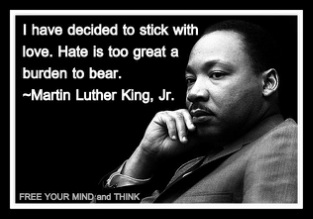
Well, I do. Tonight students presented papers about so many different topics related to religion and spirituality, with student/informal teaching assistant Ethan moderating - their goal was to challenge one another to think deeply about how religion or spirituality might arise, and be welcomed and understood and affirmed, in the contexts of psychotherapy and counseling.
So here are some of the topics students chose to study - (these students rock - that's all there is to it)....
- What happens to the faith, religion, or spirituality of soldiers as a result of their experiences in war? Does faith become stronger? Do soldiers question how God could let horrible things happen? Can faith help with healing from post-traumatic stress disorder or depression?
- How do we understand mystical experiences? When are they evidence of transcendent connections with a higher power? When might they be signs of mental illness? What role do cultural beliefs or practices play in understanding mysticism?
- Are there extreme physical or athletic experiences that can lead to transcendence, to life-changing spiritual experiences?
- What is the relationship between religiosity and men's health?
- How do we even define religion and spirituality? Where do people who are seeking - who have questions and are on a life-long search for truth and meaning but are not committed to a particular tradition - fit?
- What is "scrupulosity" and how does it develop? How do we help clergy recognize the difference between unhealthy scrupulosity and healthy practice of religious rituals and practices?
- How do religion and spirituality affect the experience of serious illness, like HIV-AIDS or cancer? Can religion and spirituality aid in healing, emotionally or psychologically, or even maybe through strengthening the immune system?
- How do different beliefs or religious traditions -- thinking of Hindus, Buddhists, Atheists, followers of Islam -- view death? What are related traditions and beliefs?
- What is the relationship between faith and religion (in this case, Catholicism) and experiences of guilt, shame, and depression? How can therapists help individuals who are struggling with guilt, shame, and depression that might be partly related to religious beliefs?
- What are the experiences of gay, lesbian, bisexual, or transgender individuals in religious communities? How do they feel when someone says to them, "Hate the sin, love the sinner," when their sexual orientation is what they have experienced for as long as they remember? Is there really a difference between "hating the sin (which is not sin to them)" and "hating the person"? Is it possible to find a faith of comfort and support, or does a person in the GLBT community have to walk away from religion?
- And last, but not least -- Why is religion so important to the African-American community? How did African-American Christian traditions develop in response to slavery and all that happened since slavery was abolished? What role did religion play in the civil rights movement, and what role does it play in the AA community today?
"This is the great new problem of mankind. We have inherited a large house, a great 'world house' in which we have to live together - black and white, Easterner and Westerner, Gentile and Jew, Catholic and Protestant, Moslem and Hindu - a family unduly separated in ideas, culture and interest, who, because we can never again live apart, must learn somehow to live with each other in peace."
Do I need to point out the difference between this passage and the language (and intellect and heart) of our current political figures? Read more of the words of this brilliant, passionate, committed, spiritual, and very complicated man -- listen to his 1964 Nobel Peace Prize speech, re-read one of his letters from the Birmingham jail. Think about his attempts to understand history, human nature in all of its glorious potential as well as its flaws, God and spirituality, with the hope of inspiring all of us to work together -- re-considering his ideas and beliefs might elevate us and challenge us to be better people, to respect one another a little more, to love more strongly in words and actions.
I believe that we, all of us, deserve better than what is currently on the table politically. And I believe, more importantly, that a change toward hope and love, mercy and grace, begins with us and how we treat one another. I want to talk about this more, and to introduce you to the work of Parker Palmer, a Quaker writer and teacher -- so stay tuned.


 RSS Feed
RSS Feed
